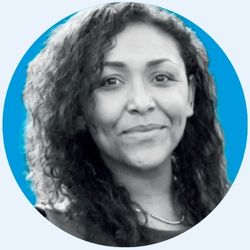Rethinking equality and diversity
Equality and diversity are well established in education, but the emphasis needs to move towards inclusivity, says Lynette Leith.
The terms equality and diversity (E&D) are used regularly in education for good reason. Teachers embed these concepts to educate young minds. They adjust and develop their teaching style to include different cultures, people and places. They do this to broaden learners’ understanding of the outside world, represent the diverse communities they serve and provide relatable content to motivate learners.
Leaders need to pay close attention to E&D. Across the sector, we all pledge to ‘improve’ E&D; we embed this in our core values and strategic commitments, and our teachers strive to do their absolute best for all learners (and they do so).
However, national achievement gaps remain. Black and mixed ethnicity learners continue to achieve less well than others. Underperformance starts at school, where the brightest children in disadvantaged communities perform below the least able in affluent areas, not forgetting other challenges such as gender.

E&D has interested me from my earliest days as a young lecturer. I wanted to ensure I represented and motivated all learners, understanding and considering their world in everything I did. It is here where my philosophy of ‘10 per cent course content and 90 per cent everything else’ began. Here, social inclusion, the wider curriculum and skill development are recognised as having a significant impact: this is the 90 per cent. That is not to say that knowledge is not important; learners spend most of their college time in lessons developing a rich skill and knowledge base. However, there is some way to go in re-addressing the knowledge base. For example, the Black Further Education Leadership group asks for “a radical revision of FE curricula and qualifications [...] incorporating the importance of colonial history and its influence on society, historically and now”. This will enable us to deliver a truly representative curriculum.
I believe representation and inclusion should extend into all aspects of college life. How is college life truly inclusive for all? To what extent do we genuinely consider the social challenges faced by young people? For a young white male who comes from a disadvantaged background trying to keep his head above water, no amount of embedding will help. He must be accepted and included fairly.
The shift from E&D is about moving away from discussing differences to being inclusive in everything we do. We must move from ‘doing’ equality and diversity into a culture of ‘being’ inclusive in all that we do and teach.
A colleague once said: “Diversity is not a duty or tick list, it’s the joy and richness of life itself.” I look forward to the day this is incorporated within the fabric of our entire sector.
Lynette Leith is vice principal at Hull College, with expertise in technical and vocational curriculum. She is an ETF board trustee and was also recently appointed to the SET management board







